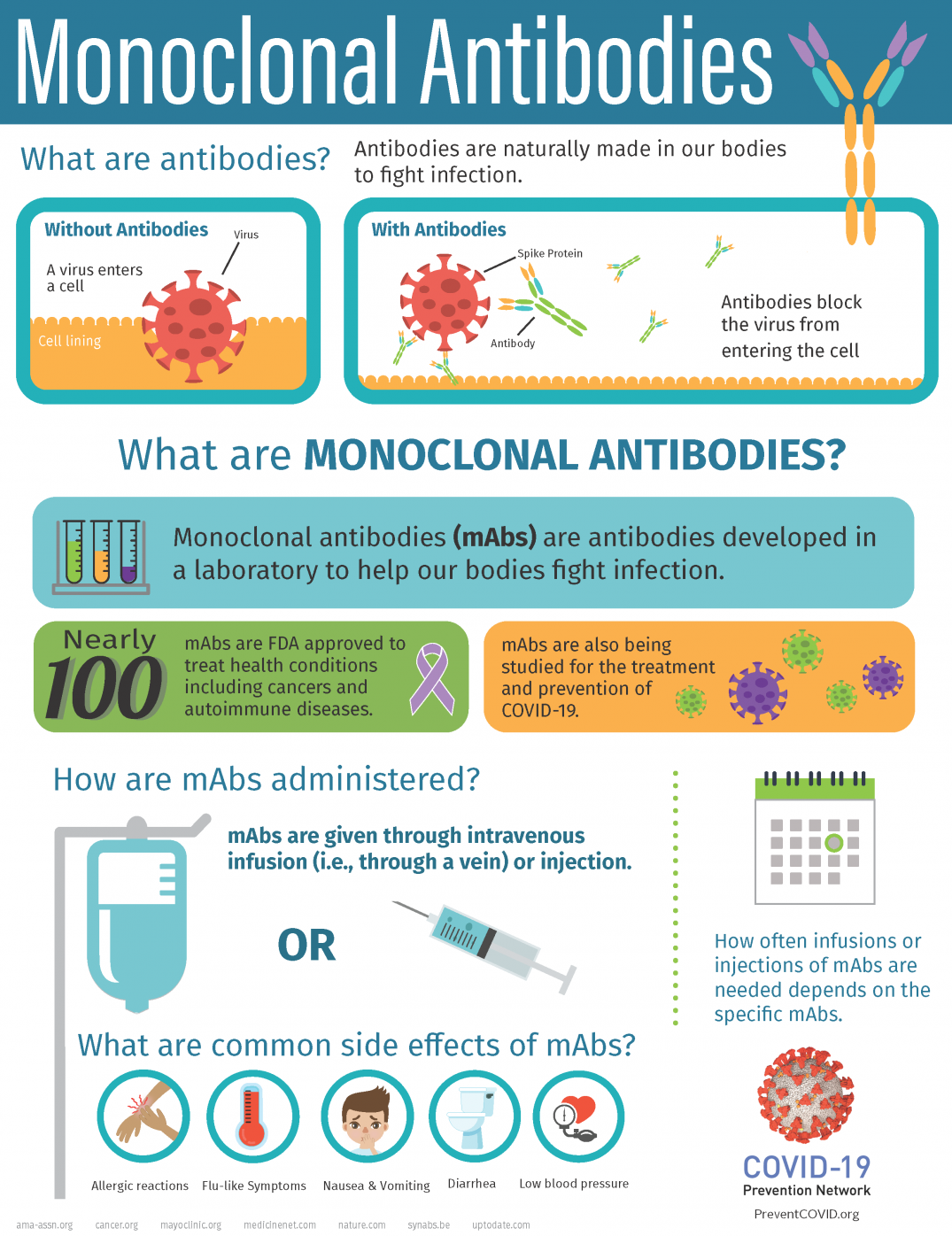


How Monoclonal Antibodies Work

Credit: Laura Long, CoVPN
Antibodies are naturally made in our bodies to fight infection. Without antibodies, a virus can enter and infect a cell. With antibodies, however, when the virus tries to enter the cell, antibodies block the virus. Monoclonal antibodies (mAbs) are antibodies developed in a laboratory to help our bodies fight infection. Nearly 100 mAbs are FDA-approved to treat health conditions including cancers and autoimmune diseases.
Monoclonal antibodies are also being studied for the treatment and prevention of COVID-19. They are given through intravenous infusion (i.e., through a vein) or injection. How often infusions or injections of mAbs are needed depends on the specific mAbs. Common side effects of mAb treatment can be allergic reactions, flu-like symptoms, nausea and vomiting, diarrhea, or low blood pressure.
Content last reviewed on May 12, 2021
